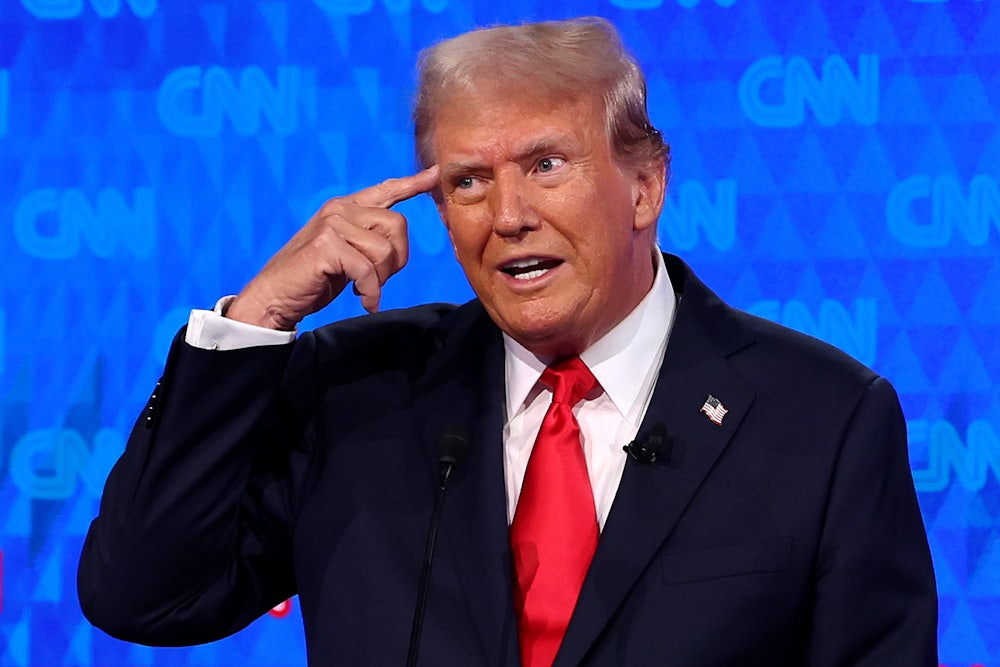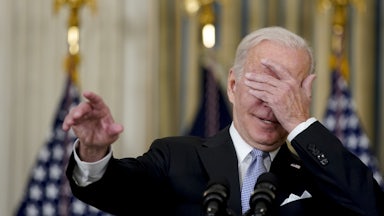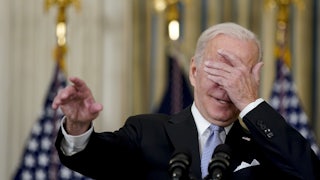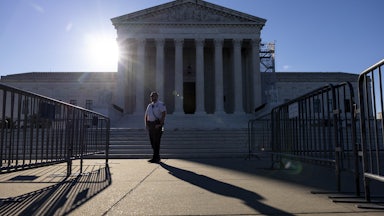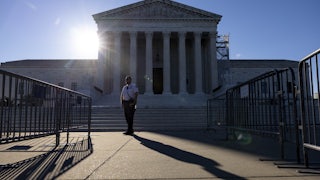Publishing an unnecessarily verbose treatise will provide more fuel for our opponent’s fire of misinformation and misrepresentation to voters. It is with that recognition that we will present a streamlined platform in line with President Trump’s principled and popular vision for America’s future.
— Memo sent to the Republican platform committee by senior Trump advisers Chris LaCivita and Susie Wiles, as reported by Shane Goldmacher in The New York Times, June 29
Jake Gittes: Actually, this hasn’t happened to me for a long time.
Evelyn Mulwray: When was the last time?
Jake: In Chinatown.
Evelyn: What were you doing there?
Jake: Working for the district attorney.
Evelyn: Doing what?
Jake: As little as possible.
—Chinatown (1974), directed by Roman Polanski and written by Robert Towne, who died July 1
As the Republican platform committee meets this week, its marching orders from the presumptive nominee are precisely what, according to Jake Gittes (Jack Nicholson), a flatfoot must do in Los Angeles’s crime-ridden Chinatown, circa 1937: “As little as possible.” Committee members chosen by Donald Trump will make radical cuts to the party platform to render it unobjectionable. Don’t be surprised if the upshot is no platform at all, as we saw in 2020.
I can’t condemn the likely elimination of such hard-right planks as a call for a constitutional amendment banning abortion, which has been in every GOP platform since 1976, or opposition voiced in the 2016 platform to the Supreme Court’s twin rulings upholding gay marriage. But neither can I condone the GOP cupping its hands over its eyes while writing Trump a blank check. People used to complain that the Republican Party was too ideological. You don’t hear that so much anymore, because now the problem (as, yes, I’ve written before) is that the GOP possesses no ideology at all. You don’t believe me? Consider that FreedomWorks, the extremist libertarian group that successfully championed Tea Party conservatism a decade and a half ago, closed its doors in May. It blamed Trump.
Granted, the GOP is as partisan and extremist as it ever was. Indeed, it’s more so, given its indifference to Trump being convicted on 34 felony counts and its absurd branding of January 6 insurrectionists as “political prisoners.” But partisanship and extremism are different from ideology, because the latter requires at least some faint whiff of an idea. Today’s GOP extremism exists, like Trump himself, only to pursue power for its own sake. Like Trump, the Republican Party is 100 percent opportunistic and largely improvisational. Platforms get in the way of that.
Trump is backing away even from the Republicans’ shadow platform, the Heritage Foundation’s Mandate for Leadership, which is part of a larger mobilization called Project 2025. “I know nothing about Project 2025,” Trump wrote Friday on Truth Social (never mind that his own super PAC has been promoting it):
I have no idea who is behind it. I disagree with some of the things they’re saying and some of the things they’re saying are absolutely ridiculous and abysmal. Anything they do, I wish them luck, but I have nothing to do with them.
Mandate for Leadership is often described as a blueprint for Trump’s second term in the absence of Trump having much of one himself, either in his public statements or on his campaign website. But apparently he finds even an unofficial platform too confining.
Trump’s getting some predictable pushback from the anti-abortion lobby, according to Michael Scherer and Josh Dawsey in The Washington Post. Marjorie Dannenfelser, president of Susan B. Anthony Pro-Life America, said in a written statement, “If the Trump campaign decides to remove national protections for the unborn in the GOP platform, it would be a miscalculation that would hurt party unity and destroy pro-life enthusiasm between now and the election.” Tony Perkins, president of the Family Research Council, complained in a letter last week to Republican National Committee Chair Michael Whatley, “The Republican Party should not be operating as we point out the left so often does—wanting to silence opposition.” Dannenfelser and Perkins, along with Ralph Reed, president of the Faith and Freedom Coalition, and Penny Nance, president of Concerned Women for America, wrote Trump last month to complain about the likely omission. “This is the language that both you and Ronald Reagan ran on and won,” they said.
But don’t take these statements at face value. Dannenfelser, Perkins, Reed, and Nance are all obliged to register these protests to appease their constituency and keep the checks flowing. But they’re probably fine with whatever trims Trump deems necessary; after all, they’ve already won Dobbs. And they probably understand that their complaints will help Trump by making him seem more moderate to independent voters. Trump should thank them! Scherer and Dawsey report:
Trump allies are not overly worried about the platform skirmish, because evangelicals strongly opposed to abortion have remained among his most fervent supporters regardless of his evolving positions on the issue.
The religious right put up with Trump committing fraud. It put up with Trump cheating on his wife with a Playboy pinup and a porn actress. It put up with Trump sexually abusing a magazine writer. It will put up with a muted (or nonexistent) platform, just like it did in 2020.
I first saw Chinatown (nobody watches it just once) on the weekend it opened, in June 1974. That was two months before President Richard Nixon was forced to resign. The film’s dark mood matched the political moment. Nixon had obviously committed many crimes in office, and it wasn’t yet clear that he would answer for them. Three months before filming began, a 29-year-old White House aide named Gordon Strachan appeared before the select Senate committee on Watergate. He was asked what he would advise a young person thinking of moving to Washington to pursue a career in government service. “My advice would be to stay away,” Strachan said.
That cynicism about Washington voiced half a century ago persisted and metastasized, and eventually Trump turned it into a movement. Strachan is still with us. He got indicted, but it was tossed out. He moved to Park City, Utah, and enjoyed a successful career as a corporate lawyer. He is now retired. I wonder who he’ll vote for this year.
